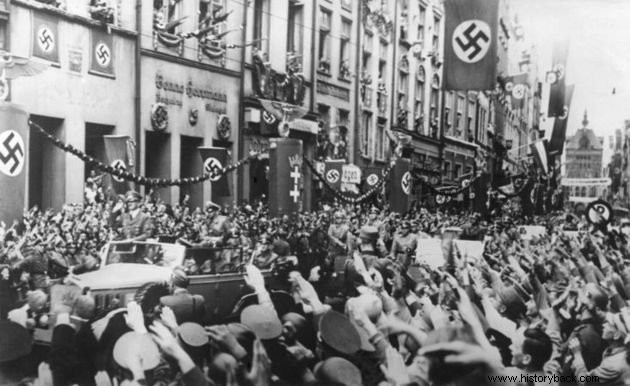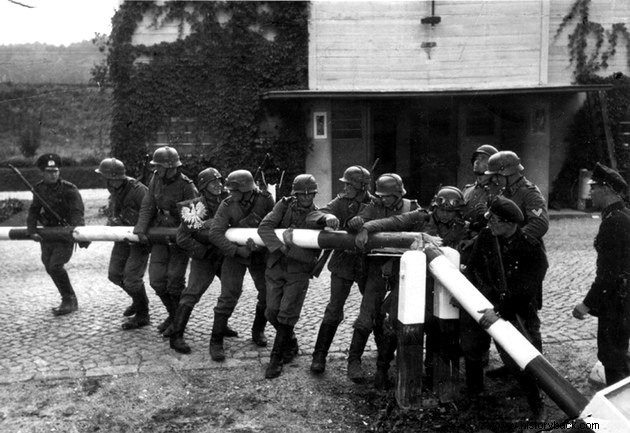The start of the Second World War occurred on September 1, 1939 with the invasion of Poland by the German army.
Germany demanded that Poland return the so-called “Polish Corridor” zone and the port of Danzig. These had been lost during the First World War. As the Poles refused to do so, Hitler marched on the country.
Two days later, on September 3, England and France declared war on Germany.
The conflict would last six years and would only end on May 8, 1945. It is estimated to have left 50 million dead.
Causes of World War II

World War II occurred due to a number of factors. You have to remember the end of the First World War to understand them.
When hostilities of 1914-1918 ended, the victors imposed a series of economic sanctions and territorial losses to punish Germany through the Treaty of Versailles.
Germany had to return the territories of Alsace and Lorraine to France, and eastern lands were ceded to Poland. In addition, it had to bear the costs of the conflict by paying high indemnities.
As the country needed to pay off the debt, it was hit by a financial crisis marked by inflation, currency collapse and mass unemployment.
These factors contributed to facilitating the creation and expansion of ideologies such as Nazism. He claimed that the cause of Germany's problems was caused by an international conspiracy and the Jews.
Convinced by this speech, part of the Germans supported the leader of the Nazi party, Adolf Hitler, electing him in 1933.
See also:Causes of World War IIThe invasion of Poland and the beginning of the Second World War

Germany disagreed with many points of the Treaty of Versailles and was against the new demarcation of the eastern border.
A “Polish Corridor” was established in the region, a territorial strip that comprised the port of Danzig. This was given to Poland so that the country could have an outlet to the sea.
However, with this concession, Germany lost territory and access to raw materials from Ukraine, Siberia, Caucasus and Romania.
After Adolf Hitler came to power, Germany reoriented its economy towards war and the country's finances began to improve.
Even against the Treaty of Versailles, Germany resumed arms production in 1935 and established compulsory military service.
See also:Consequences of World War IGerman expansion
Hitler began to promote an expansionist policy with the intention of uniting all Germanic peoples.
Thus, it annexed Austria in 1938 and part of Czechoslovakia in 1939, provoking protests from England and France.
However, the Nazi advance was not initially contained because the great powers saw in their actions a way to stop the communism of the Soviet Union. Furthermore, these countries did not want to enter into a new conflict, after the slaughter that World War I meant.
Hitler, in turn, signed a five-year non-aggression pact with the leader of the Soviet Union, Stalin. Likewise, they agreed that if Germany invaded Poland, the USSR could do the same and they would divide their territory.
The Soviet Union thus contributed to the invasion of Poland. With the conquest of Poland, England and France declared war on Germany, starting World War II.
See also:WWIIComplete your search :
- Main Battles of World War II
- Consequences of World War II
- Films about the Second World War
- 6 Films About Hitler, the Dictator of Nazism
- Questions about World War II
